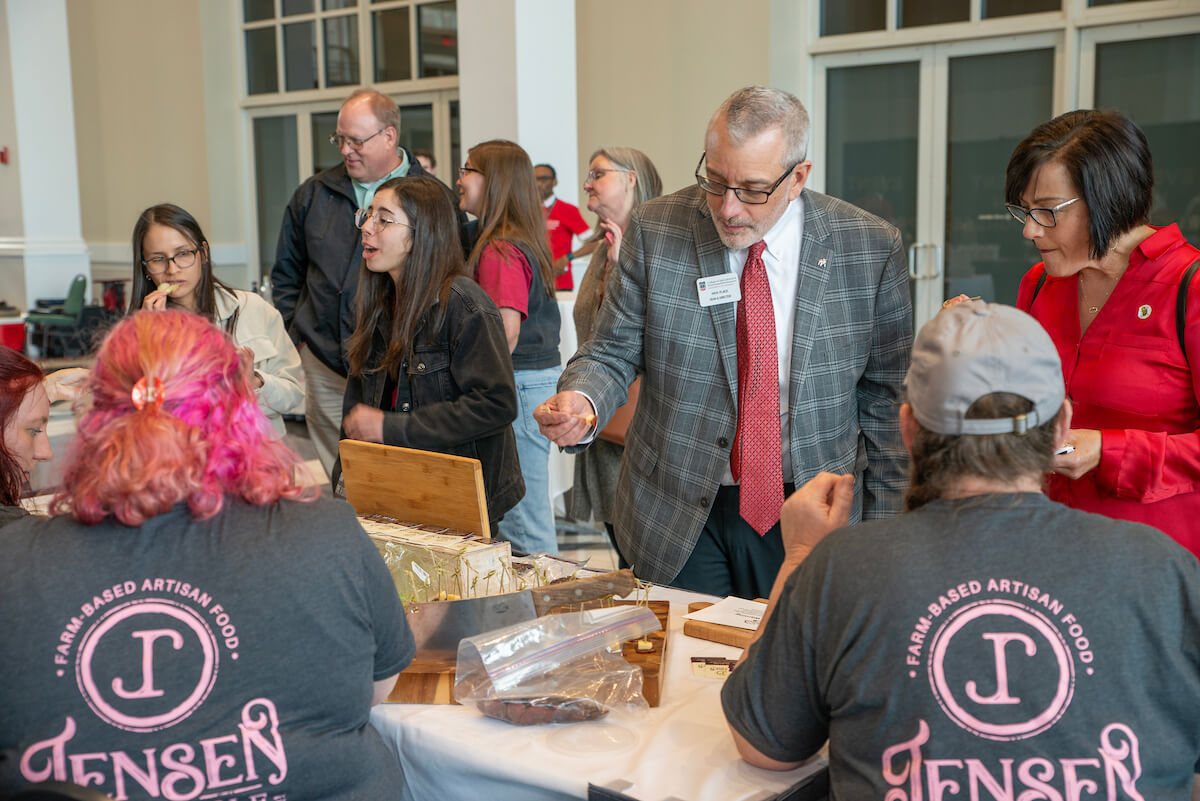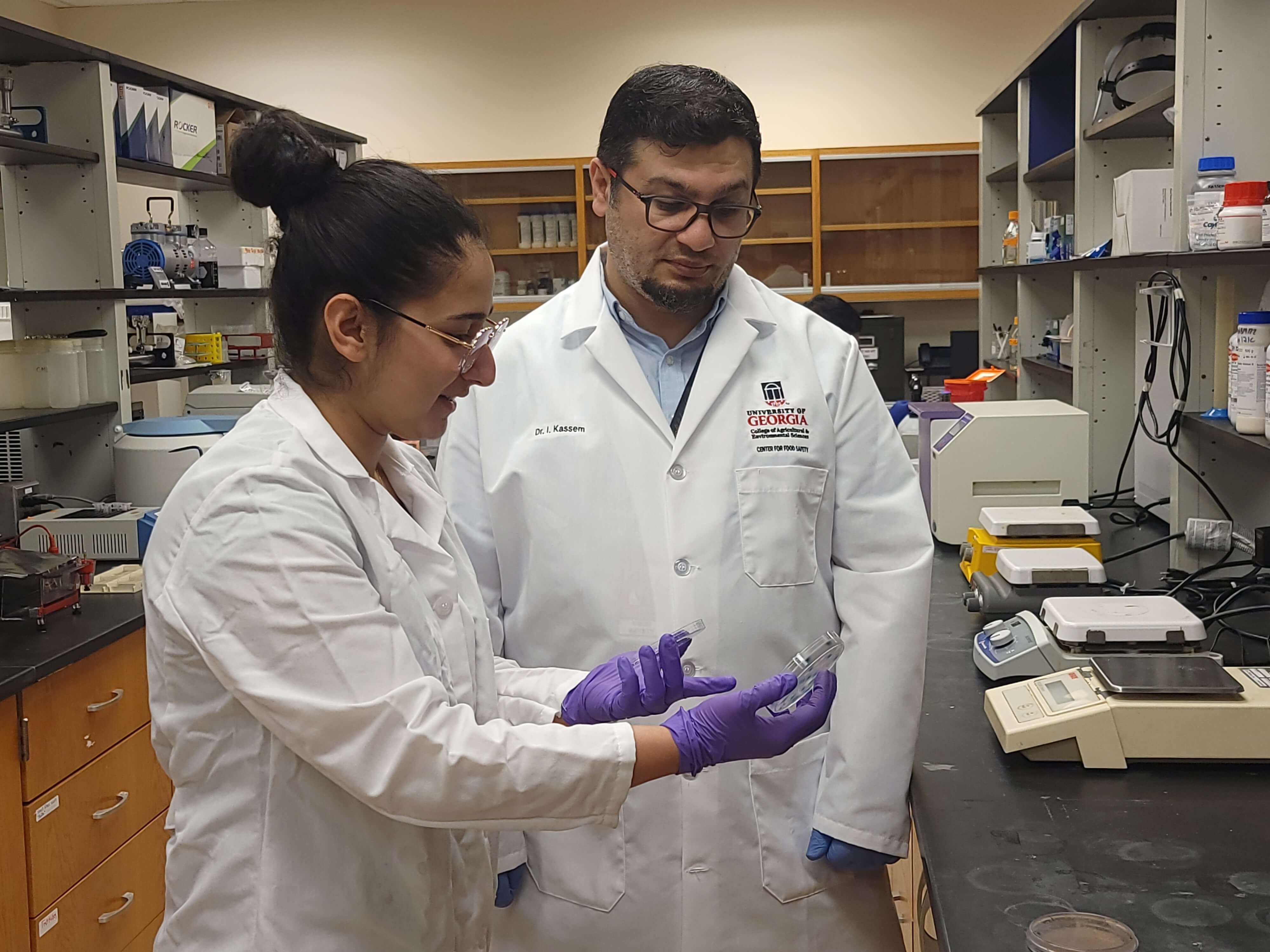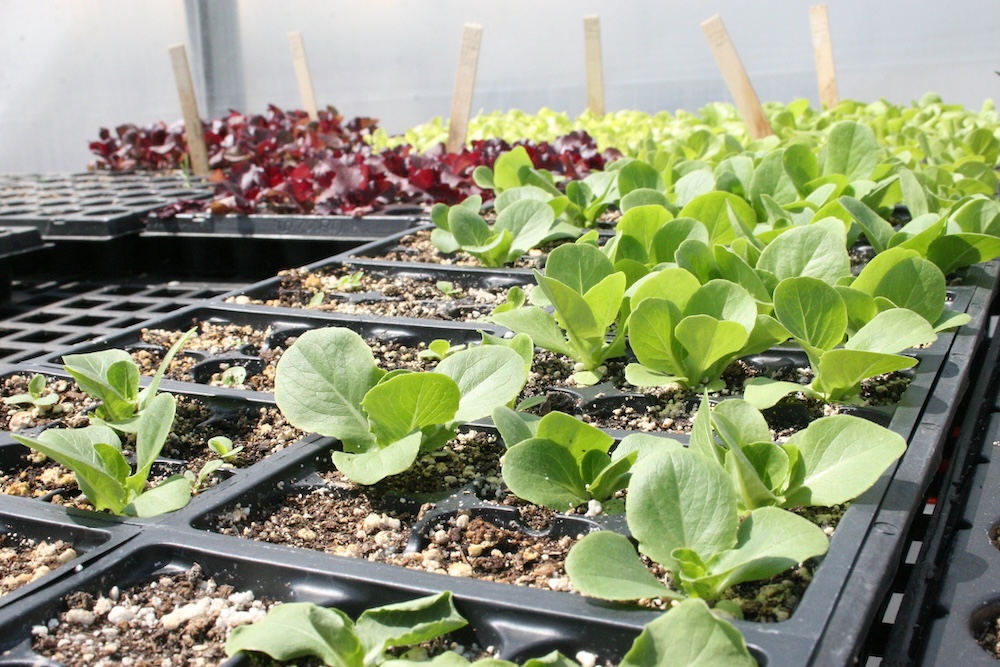
New research from the University of Georgia suggests that something as simple as a cup of tea can help in the fight against COVID-19.
Tea has been renowned globally for its many health benefits, and Malak Esseili, a virologist with the University of Georgia Center for Food Safety in the College of Agricultural and Environmental Sciences, wanted to know if it may also affect SARS-CoV-2.
When the first rumblings of the pandemic began, no one had to convince Esseili of the seriousness of the matter because of her background studying viruses. She immediately began looking for ways to help protect herself and her family. She needed something that was easily accessible and palatable, so she turned to the humble tea leaf. After a quick trip to her local grocery store, she was ready to begin her research.
“Having something that is accessible, easily prepared, and suitable for all the family would be ideal,” said Esseili, who was also inspired by her tea-loving kids.
Reducing the virus
Her team’s findings, out now in the journal Food and Environmental Virology, demonstrate how certain teas inactivate SARS-CoV-2 in saliva — in some cases by up to 99.9%. This is important because the virus infects and replicates inside the oral cavity, passing through the oropharynx before reaching the lungs.
“Inactivating SARS-CoV-2 in the mouth and the throat matters because that potentially reduces the introduction of the virus to the lower respiratory system,” Esseili said.
Esseili and then-graduate student Julianna Morris, who graduated with her master’s degree in food science in 2023, studied 24 different types of commercially available teas, some of which claim to aid in respiratory health. Of those, they found five that significantly reduced the virus in saliva: raspberry zinger, eucalyptus mint, mint medley, green tea and black tea, with black tea showing the greatest reduction. All testing was done in the laboratory in simulated conditions.

Hot tea as a drink or a gargle
The team tested the efficacy of tea both as a drink and as a gargle to provide an option for those do not want to drink tea but want a highly concentrated rinse that would provide the same benefits as drinking a cup of tea.
Researchers prepared a drinkable infusion concentration using one tea bag per cup steeped for 10 minutes, with no additions such as milk or sugar. All five teas reduced the virus by at least 96% within 10 seconds in the mouth. Black tea was the most effective, reducing the virus by 99.9%. When tested as a gargle, they brewed the tea at four times the concentration of the drinkable infusion, finding that all five varieties of tea reduced the virus by 99.9% within 10 seconds when gargled.
Clinical trials are needed to understand better what effect these results may have on a patient who is ill with COVID-19, Esseili said, stressing that tea is not a replacement for medical care. Still, the initial results are both promising and exciting for those looking to supplement medical care.
“At this stage, we are not suggesting tea as a stand-alone intervention against SARS-CoV-2, because the virus also replicates in the nose and may have already reached the lung by the time a person tests positive,” Esseili said. “But tea can be an additional layer of intervention that the patients and their families can easily adopt on a routine basis.”
To learn more about research findings and other work coming out of the UGA Center for Food Safety, visit cfs.caes.uga.edu.






